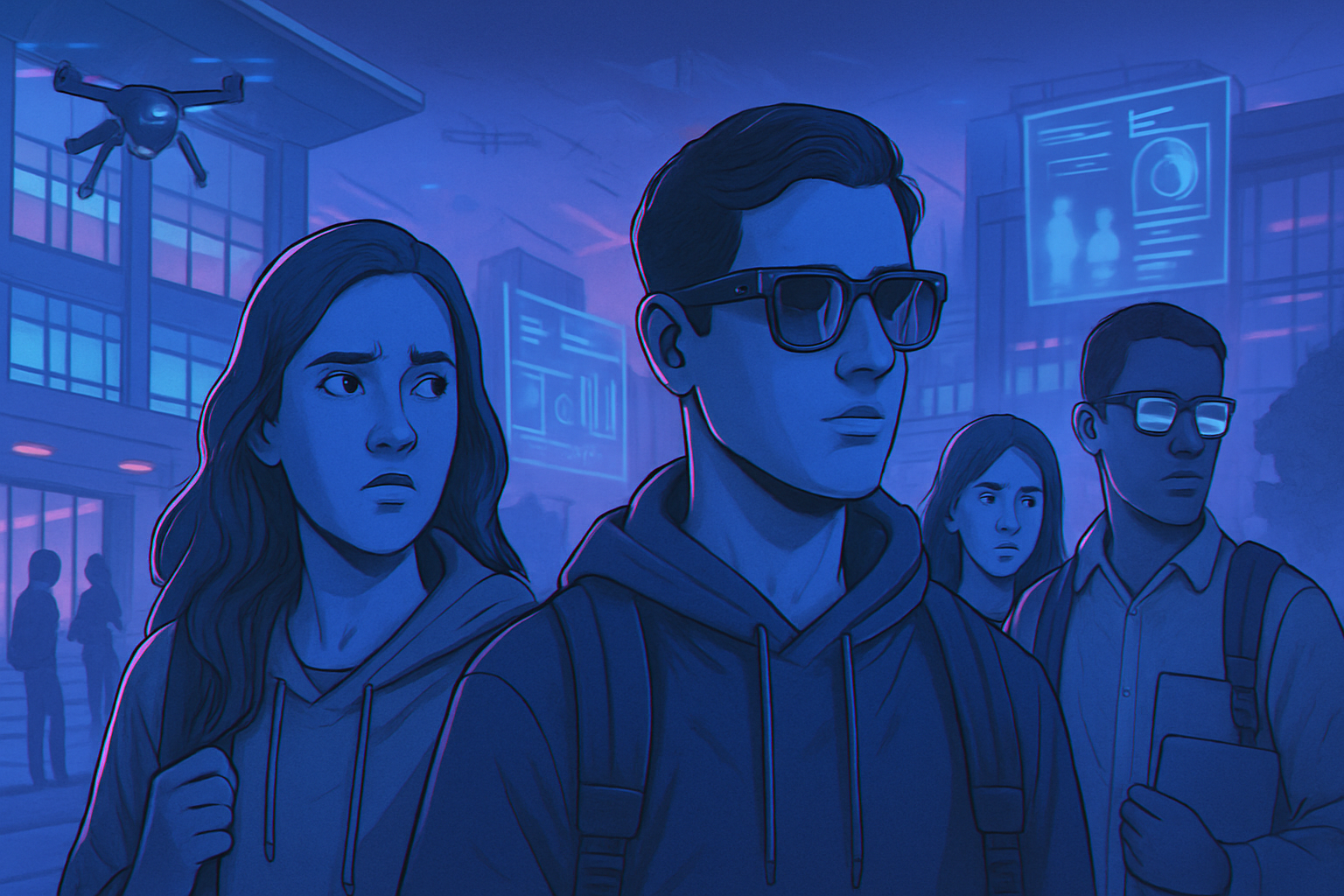The Meta Ray-Bans may violate privacy, raising growing concerns among students. This device, equipped with discreet cameras, poses major ethical challenges regarding consent. Universities, places of knowledge, are transforming into showcases of intrusive surveillance.
Concerns focus on the capture of private images, without explicit approval, of individuals in their daily lives. The need for regulations is immediate. Balancing technological innovation and respect for personal privacy will be paramount issues in the coming months.
The Meta Ray-Bans: a danger to privacy
The new connected Ray-Ban glasses, launched by Meta, raise concerns about privacy protection, especially among university students. These devices, integrating video recording capabilities, do not guarantee explicit consent from the filmed individuals. Criticism emerges regarding the intrusive nature of this technology.
Controversial features of the glasses
The glasses, designed to enhance daily life, raise ethical questions due to their recording function. Users can easily capture images and videos, but this can potentially happen without the consent of those nearby. The risks of capturing private life moments are very real.
Non-consensual use cases
Reported incidents show that students, often in public places or on campuses, feel monitored. Social interactions thus become a breeding ground for invading their privacy. The possibility that recordings are made without consent creates an atmosphere of anxiety among students.
Reactions from the university community
Universities are responding to this threat by intensifying their educational programs regarding privacy protection. Student groups are calling for strict regulations on the use of these technologies. The use of connected glasses in university spaces is now subject to scrutiny.
Data security and future concerns
Beyond concerns about image capture, the security of recorded data is also problematic. Users may be exposed to risks of hacking or malicious use of their recordings. This raises questions about the responsibility of manufacturers and existing legislation.
A necessary response from Meta
Meta must address these growing concerns. A recent release of a artificial intelligence application shows a willingness to evolve, but is that enough to ease users’ fears? Mark Zuckerberg’s statements on these new technologies suggest an increasing complexity in their responsible management.
Conclusion on the future of connected glasses
The potential of Meta’s connected glasses is undeniable, offering practical features, but the threat posed by their inappropriate use is significant. Debates surrounding this technology will continue to evolve, calling for rigorous discussions on individuals’ rights in the face of advancing modern devices. Source of information on these glasses: actu.ai.
Frequently asked questions
What are the Meta Ray-Bans and how do they work?
The Meta Ray-Bans are connected glasses that integrate a camera allowing the capture of photos and videos. They are designed to capture moments of daily life while being worn like regular glasses.
Can the Meta Ray-Bans record without the person’s knowledge?
Yes, there are concerns about the possibility that these glasses capture videos or photos without the consent of the filmed individuals, especially in public places like university campuses.
What are the ethical implications of using Meta’s Ray-Bans in a university setting?
The ethical implications include potential violations of individuals’ privacy, the need for informed consent, and concerns related to unsolicited surveillance.
How can I protect myself if I am filmed by Meta’s Ray-Bans?
To protect yourself, it is advisable to stay vigilant about your surroundings, ask individuals wearing these glasses if they are filming, and express your concerns about your consent.
Do universities have policies regarding Meta’s Ray-Bans?
Yes, some universities may develop specific policies to regulate the use of these glasses on their campus in order to protect students’ privacy and prevent image capture without consent.
What should I do if I suspect someone is filming me without my consent?
If you suspect you are being filmed without your consent, it is advisable to communicate directly with the person, and if necessary, report the incident to university authorities or campus security.
Are there laws that protect against unwanted image capture?
Yes, several laws protect individuals’ privacy and prohibit taking photos or videos without consent in certain contexts, especially in private settings or when it causes significant discomfort.
How do Meta’s Ray-Bans respect the privacy of users and filmed individuals?
Meta has implemented some safety features, such as an indicator light when the camera is active, but critics argue that this may not be sufficient to ensure respect for third-party privacy.






